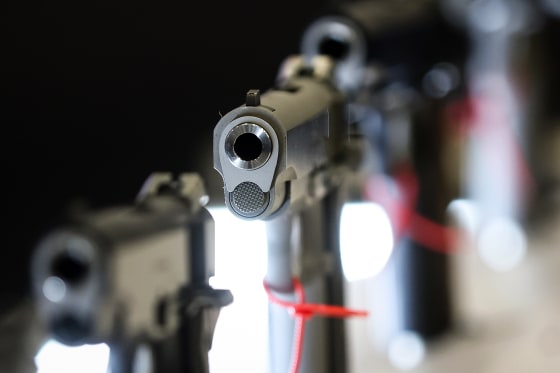WASHINGTON — The Supreme Court on Monday delivered a blow to Minnesota’s attempt to prevent young adults from obtaining permits to carry firearms in public.
The court, which frequently backs gun rights, rejected the state’s appeal of a ruling that said a law banning 18-to-20-year-olds from applying for such permits violated the Constitution’s Second Amendment, which protects the right to bear arms.
Although the court did not issue a ruling in the case, it sends a signal that similar laws, including one at the federal level, could be under threat in the future.
The high court on Monday also turned away a separate gun case involving a challenge to the University of Michigan’s ban on possessing firearms on campus. That is also an issue that is likely to return to the court.
The Minnesota law was enacted in 2003, with more than 30 states and the District of Columbia having similar measures. Federal law requires people to be 21 if they buy a handgun from a licensed dealer, although other firearms are available at an earlier age.
Gun control advocates say that such laws are needed because guns are a leading cause of death, both suicides and homicides, among people between the ages of 18 and 20.
Lawyers for the state argued in court papers that the state “allows significant access to guns” for those under 21. Anyone can use or possess a firearm if they are supervised by a parent or guardian, and from age 14 onward, teens can possess guns without any supervision on their own property or when hunting.
The law was challenged by gun rights groups, including the Firearms Policy Coalition, in addition to individual members.
A federal judge struck the law down in 2023, with the St. Louis-based 8th U.S. Circuit Court of Appeals reaching the same conclusion the following year. That prompted the state to ask the Supreme Court to intervene.
The Supreme Court has in recent months shown reluctance to take up additional gun rights cases in the aftermath of its 2022 ruling that expanded the right to bear arms, putting various long-standing regulations under the microscope and prompting states to pass new ones. That has led to a wave of new litigation.
So far, the court’s only ruling since then was in June 2024 when it upheld a federal law that prohibits people subject to domestic violence restraining orders from possessing firearms.
In other cases, the court has refused to intervene, including earlier this month when it declined to hear a challenge to new gun restrictions in New York.

